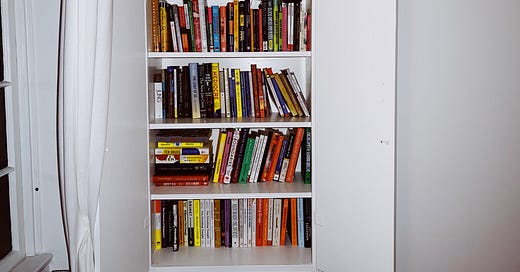The 50 best books I read in the after times, reviewed
I didn't have much sex but I did read much books
Back from that week long silent meditation retreat, which I’ll write about in an upcoming newsletter. But now: books.
I used to do these wild book reviews at year end, they took hours and hours and all I remember from them was one time after spending a week writing it and doing things like triple-checking links and downloading book cover graphics and filtering them through VSCO so it was both aesthetically and informationally perfect, a lady wrote me and said “YOU ARE AN ANGRY WOMAN WHO READS ANGRY BOOKS.” And that was only 2017! Anyway, the last one of these “best books of the year” published in 2018, and aside from a few reviews in this newsletter (this one, this one), I haven’t done a proper year-end list of all the books I read and liked in years. At first I thought, Why not start where I left off? (2019, lols). Then I looked back over the list of books I’ve read since January 1, 2019, and it was very very very long and so I thought, Why not start where my life left off? And that w…



